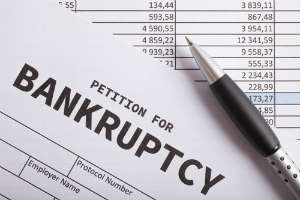When Should You Consider Filing For Bankruptcy?
Filing for bankruptcy is never an easy decision. Bankruptcy laws are in place to protect consumers and give second chances to people who are unable to manage their debt. But many consumers who could benefit from filing for bankruptcy hesitate to do so, often out of a sense of pride.
In many cases, individuals who need to file for bankruptcy but hesitate are just delaying the inevitable. Waiting to file for bankruptcy often causes financial problems to become much worse. However, knowing whether you should file and when to file for bankruptcy can be difficult.
Consequences of Waiting to File
It’s common for people with major financial problems to procrastinate in filing for bankruptcy – this time period of waiting is sometimes referred to as a financial “sweatbox”. This is when someone who eventually will be forced to file for bankruptcy attempts to avoid doing so by forgoing basic needs like food or medical care. Additionally, during this time period, these people are at risk of asset depletion and debt collection lawsuits.
A report by the Notre Dame Law Review found that the longer you stay in the sweatbox, the more difficult your financial problems will become once you finally come to terms with your dire financial situation and file for bankruptcy. Researchers used data from the Consumer Bankruptcy Project, which is a long-term academic research project that studies those who file for bankruptcy, their reasons for doing so, and the consequences of filing.
More than ⅔ of those surveyed were “long strugglers” – a term used to refer to people who stay in the sweatbox for more than two years. Almost ⅓ waited five years or longer before they filed for bankruptcy.
The report found some troubling consequences for those who wait too long to file for bankruptcy:
- On average, long strugglers have half the median assets as those who wait less than two years to file bankruptcy.
- Long strugglers have a median debt-to-income ratio 40% higher than other debtors.
- Approximately 50% of long strugglers have faced debt collection lawsuits, compared to 35% for other debtors.
When Should I File For Bankruptcy?
It can be difficult admitting that you need financial help. Sometimes, people who find themselves in deep financial trouble are hesitant to file for bankruptcy out of a risk of looking like a failure. But bankruptcy is much more common than you may realize, and there is no shame in seeking out the assistance you need to recover financially. These laws are in place for a reason.
If you’re unsure of whether you should file for bankruptcy, here are some common indicators that it may be the right choice for you:
- Your total debt is more than 40% of your income – At this point, you’ll likely be unable to pay off your debts on your own.
- You’re going into new debt to pay for other debts – Such as paying for bills using credit cards that you cannot pay off.
- You have debts that are eligible for bankruptcy – Unsecured consumer debts (e.g. credit cards, medical bills, personal loans, past-due utility bills and rent, etc.) can be wiped out by bankruptcy. However, student loans and certain types of court judgments do not qualify for bankruptcy.
- You’re going without essentials – 60% of long strugglers went without medical care while they were in the sweatbox and almost 32% went without food.
If one or more of these indicators applies to you, you should consider speaking with a credit counselor or bankruptcy lawyer about your financial and legal options.
How Bankruptcy Can Improve Your Financial Situation
It’s understandable to be hesitant about filing for bankruptcy. But if you’re at the point where debts are unmanageable, filing for bankruptcy can help you get a financial second chance.
Credit Score Improvements
A study by the Federal Reserve Bank of Philadelphia found that credit scores plummeted in the 18 months before filing for bankruptcy, but climbed consistently afterward. The average improvement for someone who filed Chapter 7 bankruptcy rose from 538.2 to 620.3 by the time their case was discharged. For Chapter 13 cases, average scores rose from 535.2 to 610.8.
An End to Debt Collection
Filing for bankruptcy can be a weight off your shoulders if you’ve been dealing with stressful collection practices, such as phone calls from debt collectors, debt collection lawsuits, and wage garnishment. When you file for bankruptcy, there is an “automatic stay” which halts nearly all collection efforts.
If you think bankruptcy may be right for you, we highly suggest speaking with an experienced bankruptcy lawyer as soon as possible. The process involves complex paperwork and legal procedures, so it’s important to have guidance from someone with experience in these cases.


